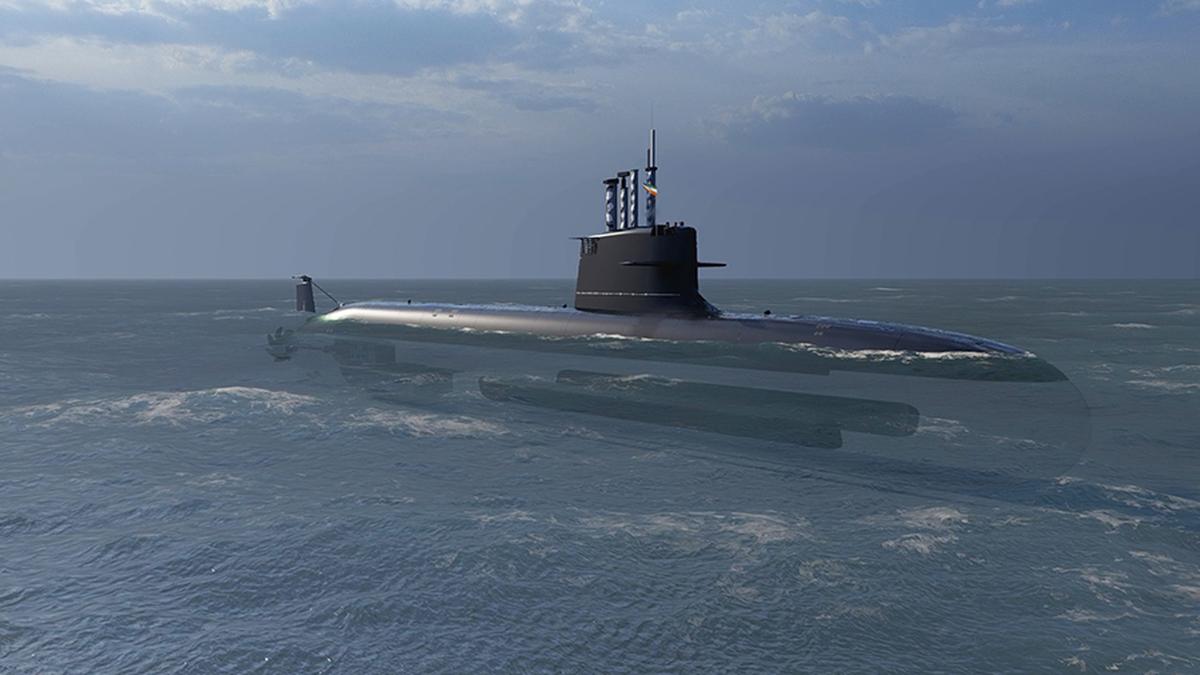
DRDO indigenous submarine proposal to go for CCS approval in couple of months; eight years for first sub
The Hindu
DRDO prepares to propose indigenous submarine design to CCS as part of Project-76, alongside Project-75I procurement deal.
With the deal to buy six new diesel-electric submarines entering the contract negotiation phase, the Defence Research and Development Organisation (DRDO) is gearing up to bring a proposal to design and develop an indigenous conventional submarine to the Cabinet Committee on Security (CCS) for approval.
The procurement deal comes under Project-75I, while the indigenous development proposal comes under Project-76.
“The inter-ministerial consultation is going on and it should be ready for CCS approval in the next two months,” said an official who did not wish to be named. “Once approved, the design phase is expected to take two to three years, and another five years for construction. So it is expected to take around eight years to have the first submarine, once the project is sanctioned,” the source said.
The indigenous submarine is expected to displace around 3,000 tonnes and will be capable of launching land attack cruise missiles (LACMs), which are still under development, from its torpedo tubes. A new LACM being developed by DRDO fits this criteria, sources stated.
As reported by The Hindu last June, DRDO carried out a preliminary study to determine the contours of P-76, after a go-ahead from the Defence Ministry. P-76 will be a continuation of the Advanced Technology Vessel (ATV) project, under which the Arihant series of nuclear ballistic missile submarines (SSBN) are being built, with another project underway to build nuclear-powered attack submarines (SSN).
The project is aiming for 90% to 95% indigenous content, with major systems being sourced domestically including the weapons, missiles, combat management system, sonars, communications, electronic warfare suite, mast, and periscope. Only some chips, electronics, and tubes will have to be imported, sources said, adding that the indigenous SSBNs also have over 90% indigenous content.
Meanwhile, the P-75I tender for six conventional submarines is set to begin contract negotiations after long delays, with the bid by Mazagon Dock Shipbuilders Limited (MDL) in partnership with Germany’s ThyssenKrupp Marine Systems (TKMS) of Germany have cleared the technical evaluation. The deal is estimated to be worth around ₹70,000 crore, way above the earlier benchmark of ₹43,000 crore. The final contract is expected to take at least a couple of years given the tough negotiations, and the first submarine will be delivered seven years later. This means that the P-75I and P-76 programmes will progress almost in parallel, if the development of the latter goes as per plan.

New ration cards will be issued in Andhra Pradesh from March, says Civil Supplies Minister Nadendla Manohar. An opportunity will be provided to the existing ration card-holders to make changes, the Minister says. The government has procured 33 lakh tonnes of paddy from 5.87 lakh farmers during kharif and deposited ₹7,480 crore into their accounts in 24 hours, he says.

Meghalaya Governor C.H. Vijayashankar met Bhimavva Doddabalappa Shillekyathara, who was recently awarded the Padma Shri for her contribution to Togalu Gombeyaata, a form of shadow puppetry using leather dolls, at her residence in Moranal village of Koppal district on Saturday. He invited her to the Meghalaya Raj Bhavan.











